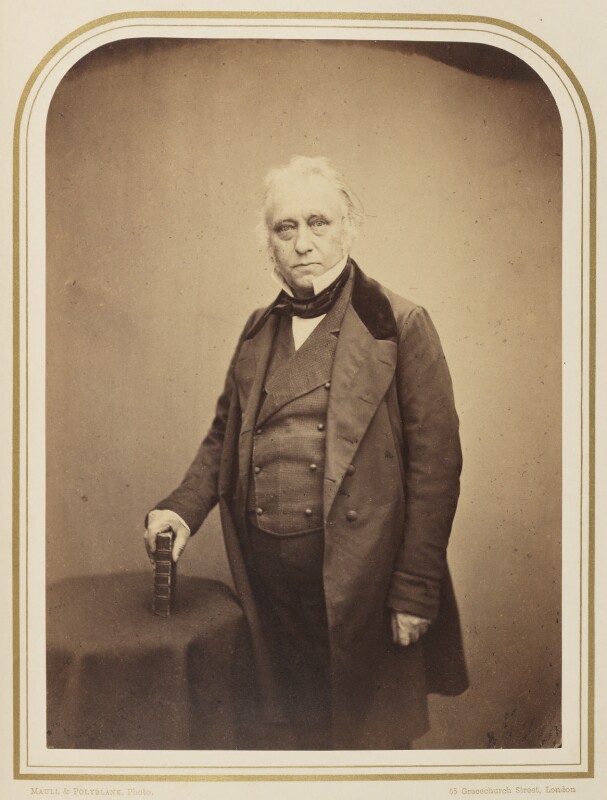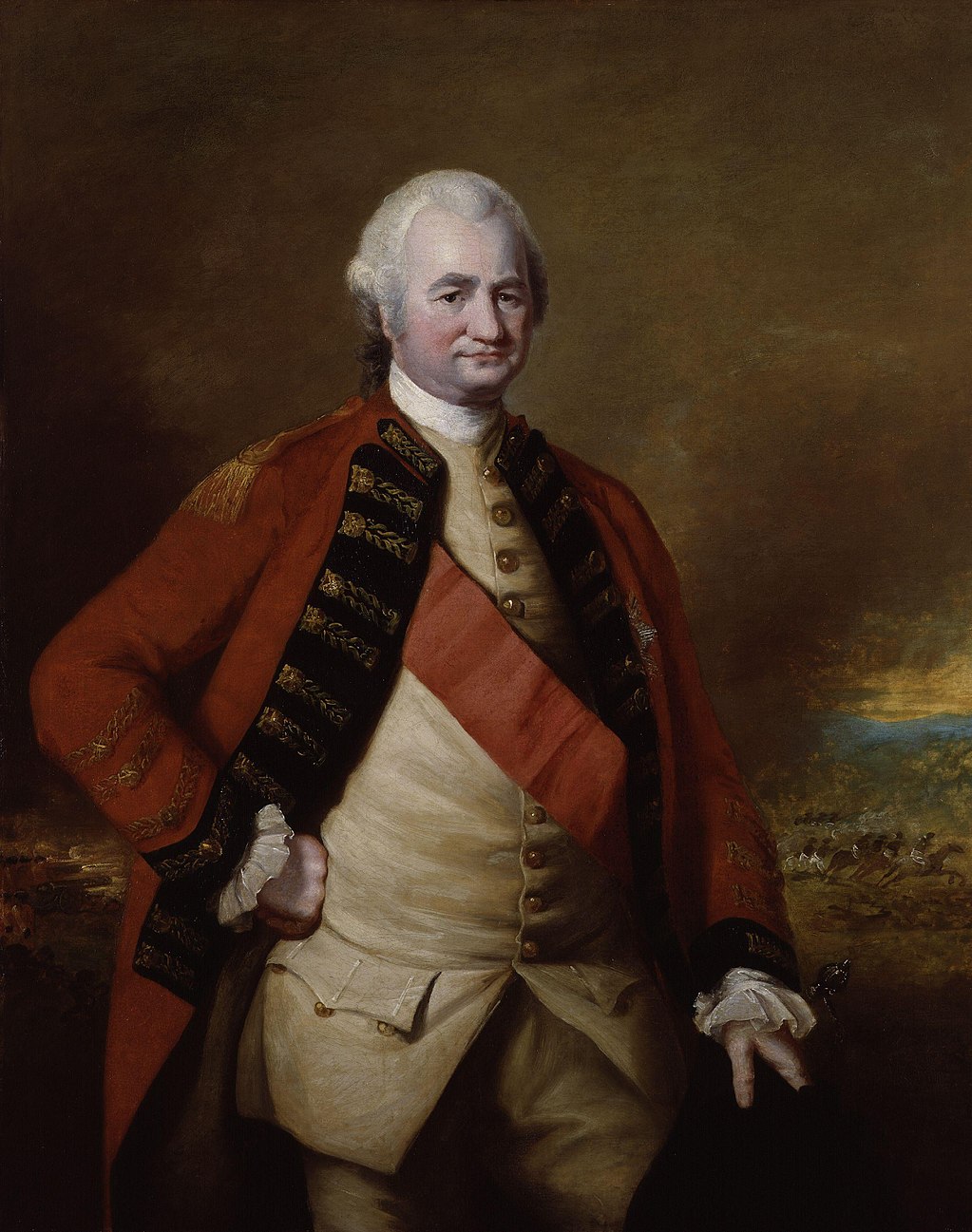Baron Thomas Babington Macaulay, Albumen print by Maull & Polyblank (April 1856). Image from National Portrait Gallery, London.
Cast of characters (in alphabetical order):
Mulk Raj Anand (1905 – 2004): Indian writer who wrote in English
Robert Clive aka Clive of India (1725-1774): British officer with the British East India Company credited with “establishing” British supremacy in Bengal (i.e. laying the foundations of the British empire in India)
Mohandas Karamchand Gandhi (1869 – 1948): Lawyer and Indian leader (Professor Chaturvedi will tell us more)
Mohammed Ali Jinnah (1876-1948): Lawyer, leader of the Pakistan movement who fought to establish Pakistan.
Thomas Babington Macaulay (1800-1859): British statesman
Act 1: How Shakespeare came to India
Shakespeare came, or rather was first brought to India by the British East India Company in the eighteenth century. The first performance at the Calcutta Theatre, sometime between 1775 and 1808 (Majumdar 261), was presumably for company-men and their wives. From 1817 onwards Shakespeare became a fixture in the “systematic study” of English literature in schools and colleges across the subcontinent (Trivedi 15). In fact, in 1822 Hindu College in Calcutta became the first place in the world where his plays were included as a part of the university curriculum. This educational system was guided by the work of Thomas Babington Macaulay. He is often thought of as the architect of English education in India, and subsequently in other British colonies. In his famous Minute of February 2nd, 1835, which is more popularly known as the Minute on Education in India, Macaulay makes an argument about “the intrinsic superiority of Western Literature” and goes on to make the bold claim, without knowing either Sanskrit or Arabic, that “a single shelf of a good European library was worth the whole native literature of India and Arabia” (Macaulay 349). Given that by this point Shakespeare was not just a popular dramatist, but was seen as a god, and the pinnacle of English literature (Holderness 126), Macaulay was most likely envisioning Shakespeare in that “single shelf”, perhaps even a whole shelf of Shakespeare.
Despite this belief, what is most important is that Macaulay’s goal was not to educate all Indians. Rather, it was, as he remarks in these oft-quoted lines:
To form a class who may be interpreters between us and the millions whom we govern; a class of persons, Indian in blood and colour, but English in taste, in opinions, in morals and in intellect. To that class we may leave it to refine the vernacular dialects of the country, to enrich those dialects with terms of science borrowed from the Western nomenclature, and to render them by degrees fit vehicles for conveying knowledge to the great mass of the population. (Macaulay 359)
The phrase “Indian in blood and colour, but English in taste” highlights the fact that part of the literacy project was to create a hierarchy among Indians, a hierarchy whose basis was “taste”, “morals”, and “intellect.” One way to prove this, to prove one’s “Englishness” could therefore be a love of Shakespeare. Furthermore, scholars like Gauri Viswanathan have shown how the work of writers like Shakespeare and Milton were “standard fare” in government schools in India by the mid-nineteenth century and were used to spread religious values that could help the British consolidate power in India (Viswanathan 54, 169). Thus, not only do Shakespeare’s plays, especially The Tempest (discussed in Professor Lewis’ lectures), engage with the concept of empire, but they were also a key tool of empire.

Mulk Raj Anand. Half-plate film negative by Howard Coster (1930s). Image from the National Portrait Gallery, London.
Act 2: Caliban and Gandhi
In our readings of The Tempest this quarter we have often seen Prospero as a stand in for the colonizer and Caliban for the colonized. This configuration is also reproduced in a letter written by the famous Indian writer Mulk Raj Anand addressed to ‘Bapu’ – M. K Gandhi. This letter dated June 20 – presumably 1920, because that is the year on some of the other letters in the collection – is titled “Caliban and Gandhi.”
The premise of the comparison between the man who is called ‘Bapu’ – the father of the nation, Gandhi – and Caliban is an intriguing anecdote involving Mohamed Ali Jinnah. Jinnah was a leader of the All India Muslim League, who later became a staunch advocate for the creation of Pakistan. Among the various epithets he was known by in Pakistan was baba-e-qaum (father of the nation). Anand writes, “I was amused when Mister M.A Jinnah dismissed you by a contemptuous comparison: ‘Oh Gandhi! That Caliban!’ The scurrilous dismissal of both you and Caliban shows that he has perhaps never read Shakespeare’s fantasy play Tempest” (Anand 87). Anand, here, is reprimanding Jinnah not so much for the comparison between Gandhi and Caliban, but for Jinnah’s interpretation of the play, in which Jinnah saw both Caliban and Gandhi as “low creatures” (Anand 88).
Anand then goes on to analyze the role of Caliban in The Tempest, and gives a persuasive reading that paints Robert Clive, the first commander in chief of British India, and popularly known as Clive of India, as a Prospero-like figure, who
Robert Clive, portrait from the studio of Nathaniel Dance, oil on canvas (c. 1773). Image from National Portrait Gallery, London.
was a magician figure of the 18thcentury by virtue of superior strategy which he brought to bear to defeat the Indian feudalists. He followed the pattern set by Prospero, of using the local Chiefs everywhere, by giving them gifts. Clive’s successors continued the dual policy of bribing the local princes and Bania agents while making them the servants of their will to prevail. Every clerk of the John Company regarded the Indians, who served them as inferior ‘Banias’ ‘Babus’ and ‘Baboons’! (Anand 91)
Much like Prospero dehumanizes Caliban, by using the word ‘Baboons’ Anand suggests that the British dehumanized Indians. This passage suggests that all company officials were Prosperos and all colonized Indians were Calibanesque figures. And yet, Anand remarks later in the letter, “If he [Jinnah] had read Shakespeare’s Tempest he might have seen you as arch rebel of the 20th century, as Caliban was of the 15th century” (Anand 93).
So, who is Caliban? Are all Indians, by virtue of being colonized by Prospero like figures, Calibans? Are only those Indians, who have been educated through the English system of education, Calibans – Prospero did teach Caliban English? Or is only Gandhi, Caliban? For Anand, Gandhi is Caliban, Caliban is Gandhi. Gandhi, an upper caste Hindu leader, a beneficiary of the Macaulayan system of education, is being exceptionalized through the comparison with Caliban. After all, Gandhi went to England to study the law, and practiced as a lawyer in South Africa, before he returned to India. Configuring Gandhi as the “arch rebel” of the twentieth century also erases his racism/casteism/sexism.
Along with elevating Gandhi, Anand also uses this letter to dismiss Jinnah. Anand contemptuously calls Jinnah “an imitation Brown Sahab, who wore suits tailored in Bond Street, London, wore Sulka neckties on a butterfly collar, a monocle on his right eye” (Anand 91). Is the “imitation” calling into question his brownness – owing to his disloyalty to Gandhi and the Indian national congress, or his sahabness, his Macaulay-man persona owing to his lack of knowledge of Shakespeare, seeing as Mulk Raj Anand could be regarded as a Macaulay-man himself? The latter is emphasized when Anand says, rather glibly, “I doubt though if this clever lawyer ever had the time or inclination to read Shakespeare at all” (Anand 93). An important sentence follows: “The bard of Avon was a unique genius of all time” (Anand 93). Love for Shakespeare is being taken as a sign of authenticity. An authenticity that Jinnah does not live up to, but perhaps Gandhi does? The irony is that in doing so Anand elevates Shakespeare just as Macaulay and the British system did.
Act 3: An Uninhabitable Island
By comparing Caliban to Gandhi, Prospero to Clive, Anand also sets up a comparison between the Island and India. Adrian, one of the Italian noblemen, describes the island as a “desert,” “uninhabitable and almost inaccessible” (II.i.37, 40). Similarly, while telling Miranda their story, Prospero remarks,
Then was this island
(Save for the son that she did litter here,
A freckled whelp, hag-born) not honored with
A human shape (I.ii.334-337)
When Clive came to India, he did not encounter a desert, an uninhabitable land, an island without hierarchy as Gonzalo would like. Rather, caste-based hierarchies already existed. Within these hierarchies, Brahmins (traditionally taking on professions of teaching and learning) were at the top. While Macaulay, a nineteenth century Prospero figure did recognize the “body of the people,” the “great mass of people,” let us remember he wanted to educate only one class of people, and the caste system was often exploited by the British so that it was upper caste people who had access to English education. Upper caste people now had yet another way to exert their power over lower castes.
A question that arises: were “the people,” the “natives,” these uneducated masses considered human? Throughout the play Caliban is considered to have human qualities (through the musicality and literariness of his verse for example), to show humanity, but not be human. In an Indian context, this begs the question: if Macaulay men, like Gandhi, are the “hag born” where does that leave those who are lower down in the hierarchy, particularly the caste hierarchy? Asking these questions while reading Mulk Raj Anand’s comparison forces us to imagine the perspectives and stories of those who are elided when colonialism and anti-colonial resistance is imagined as a dichotomy between Prospero and Caliban – a binary which has meant that Caliban is taken up as a hero in postcolonial adaptations.
Works Cited
Anand, Mulk Raj. Caliban and Gandhi: letters to “Bapu” from Bombay. New Delhi: Arnold Publishers, 1991. Print.
Harris, Jonathan Gil. Masala Shakespeare: How a Firangi Writer Became Indian. New Delhi: Aleph, 2018.
Holderness, Graham. Cultural Shakespeare: essays in the Shakespeare myth. Hatfield: University of Hertfordshire Press, 2001.
Macaulay, Thomas Babington. “Minute of the 2nd of February, 1835.” Macaulay, Thomas Babington. Speeches by Lord Macaulay with his Minute on Indian Education. London: Oxford University Press, 1952 [1835]. 345-361. Print.
Majumdar, Sarottama. “That Sublime “Old Gentleman”: Shakespeare’s Plays in Calcutta, 1775-1930.” India’s Shakespeare. Ed. Poonam Trivedi and Dennis Bartholomeusz. Newark: University of Delaware Press, 2005. 260-268.
Trivedi, Poonam. “Introduction.” India’s Shakespeare: Translation, Interpretation, Performance. Ed. Poonam Trivedi and Dennis Bartholomeusz. Newark: University of Delaware Press, 2005. 13-43.
Viswanathan, Gauri. Masks of Conquest. New York: Columbia University Press, 1989.
 Anandi Rao is a PhD candidate in Comparative Literature at UC Irvine and a seminar leader in Humanities Core. Her research interests are in translation studies, gender and sexuality studies, postcolonial studies and Indian translations of Shakespeare’s plays.
Anandi Rao is a PhD candidate in Comparative Literature at UC Irvine and a seminar leader in Humanities Core. Her research interests are in translation studies, gender and sexuality studies, postcolonial studies and Indian translations of Shakespeare’s plays.


I really enjoyed your blog post, especially how you were able to explain the background of how Shakespeare came to India. I also found the comparison of characters in the tempest to character in gangs book, how Gandhi and caliban were similar and also how the island is being compared to India. I think your blog post is a prime example for how a blog post should be written I will make sure to refer back to it when I write my future blog post!
The whole blog post was very insightful. I especially liked the explanation of how Caliban represents the colonizer and Caliban the colonized since there was no explanation when that argument was made during lecture. Also, comparing the native Indian’s to Caliban and the British to Prospero helped illustrate the power dynamics of each empire during those times.
Michael, Kendle, and I, Stephanie, enjoyed reading the context of the blog because of the informative hyperlinks and the connection between Shakespeare and British Conquest of India. However, since we lack historical background knowledge of India, we were not able to understand the blog to it’s full extent. Though we got the general concept of what the blog was trying to convey, we wish we could know further about the history of British Conquest, so that we can absorb the relevant information presented.
Hi Anandi!
We both really liked your blog post! It was very interesting and thought provoking regarding the comparison between Caliban and Gandhi.
One thing we took away from the post in particular was the characteristics of both figures [Caliban and Gandhi]. Very similar to Rousseau, both take a stance on an issue and argue against it, while still using it to communicate their argument. Gandhi does this through intellect and law, using his knowledge of reading and writing to publish his ideas against knowledge and learning. Furthermore, Caliban also uses this tactic, strongly against Prospero’s use and the general use of language on the island, but only expressing this through language.
This idea is very interesting, and we thank you for writing a post that stimulates such an idea. Hope everything is going well!
Shreya Kapoor and Nargis Mahajar
Humanities Core Students
Hello Anandi,
This post was really well made, my group and I really appreciate the character list you provided at the beginning as it made it really simple for us to follow along with your argument. It was interesting to know Anand’s view on Gandhi in terms of his connection to Caliban, because we did not know that there existed people who would go as far as to compare Gandhi to Caliban. Your blog is also a great example for us students when we develop our own blogs/essays.
11/10
Ivy Tran, Andres Cervantes, Terry Lin
The connection between Gandhi and Caliban was very well built, and your usage of primary and secondary sources really helped strengthen your claims. We also believe that your mentioning of Gandhi’s racism/casteism/sexism was very brave as an inclusion in your argument. Your post provided us with a different perspective of Gandhi and Shakespeare’s interpretation of Prospero and Caliban.
Although I understand that this blog post was meant to be short, I would like more elaboration on the relationship between the conquerors and the conquered. It seems like the evidence supporting your claim that Prospero serves as the symbol for the colonizer and Caliban serves as the symbol for the colonized is a correlation drawn from Shakespeare to the real world and not the other way around. I would’ve liked the argument to be more ingrained in proving how the relationship exists in reality and less how the dynamic can be found in both Shakespeare and the world. I did enjoy the thoughtfulness in the post, but just prefer this form of analysis in this case.
From your blog, I learned a new interpretation of Caliban: that he was a rebel as much as a person who was colonized. It was interesting and I enjoyed that bit of information. It led me to wonder though, would that make Miranda and Ariel the upper caste in the metaphor? What would the sailors be considered as; foreigners? Or is it it more like Prospero is the United states who feel they have been wronged by the King of Naples, the metaphorical British Empire? Where would everyone place on this metaphorical caste system if Caliban is in the lower caste and a rebel?
Hello Anandi !
I found your post extremely informative about the British empire in Indian and very compelling in regards to the use of important individuals such as Clive and Gandhi. It was also super helpful to have a list of people you referenced at the top for it was difficult at times to remember. As an open ended question, I wanted to learn more about Indian’s caste system and the British exploitation of this hierarchy.